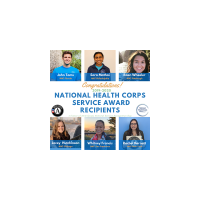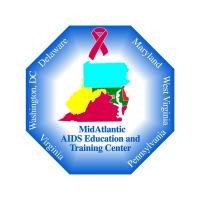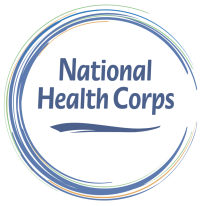
The National Health Corps is thrilled to announce the recipients of its 2019-2020 Service Award! The award was established this year in honor of AmeriCorps National Service Recognition Day to honor one member from each of the six NHC locations across the United States who exemplifies the AmeriCorps ethic of service and goes above and beyond to serve their communities. Awardees were nominated by fellow members or host site supervisors, and a review panel made final selections based on evidence of each nominee's strong ethic of service, efforts to go above and beyond their assigned responsibilities, and exceptional performance in NHC.

Leslie Lieberman, Senior Director of Training and Organizational Development and Health Federation of Philadelphia Board Member, Joe Pyle, have been selected to be part of Governor Wolf's new 25 person state-wide Trauma Informed Think Tank. The geographically and professionally diverse group of "cutting-edge thinkers" regarding ACEs, trauma and resilience, will meet fr
The Health Federation of Philadelphia’s (HFP) Diabetes Prevention Program (DPP) earned full recognition from the Centers for Disease Control and Prevention (CDC) in 2020. HFP’s DPP is an evidence-based program aimed at preventing type 2 diabetes in the Philadelphia community.

In the spirit of Fred Rogers, the PA Association for Infant Mental Health proudly co-hosted the 4th Annual Reflective Supervision Symposium with the Alliance for the Advancement of Infant Mental Health. The purpose of the Annual Reflective Supervision Symposium is to deepen the exploration of the practice of reflective supervision/consultation. Una Majmudar, MSW, LCSW, IMH-E®, Clinical Director in the Division of Children, Youth, and Families, is Vice President of the PA-AIMH and was the local chairperson for this annual event.
The 20th annual Health Cares About Domestic Violence Day (HCADV) spread its powerful and positive messages on Wednesday, October 9, 2019 in the Philadelphia Department of Public Health’s (PDPH) Health Centers across Philadelphia. Launched by Futures without Violence in 1999 in order to highlight the serious health impacts of domestic violence and sexual assault, HCADV Day is an opportunity for health care providers and domestic violence (DV) programs to shine a light on the significant role the health care community plays in screening for, and intervening with issues of DV, also referred to as Intimate Partner Violence (IPV).

Philadelphia, PA – On October 19, 2019, the Collaborative Family Healthcare Association (CFHA) honored Health Federation of Philadelphia CEO Natalie Levkovich with its prestigious Don Bloch Award during the CFHA annual conference in Denver, Colorado.
The Don Bloch Award, CFHA’s primary organizational award of significance since 2007, is named for Don Bloch, MD, the award’s first recipient and an influential and seminal founder of CFHA. The award recognizes an individual whose work and character exemplifies Bloch and thus advances the field of collaborative care in an epic manner.

Philadelphia, PA – The Philadelphia ACE Task Force’s Policy Work Group gathered at the Health Federation of Philadelphia’s Headquarters on Thursday, August 15 to learn more about effective policy change process and identify opportunities for continued advocacy for policy and procedure that incorporates good practice related to trauma, adverse childhood experiences (ACEs), and resilience-building into the city and beyond.

In July 2019 the MidAtlantic AIDS Education and Training Center (MAAETC) was re-funded for the next five years with an award of $14.2 million.

Philadelphia, PA - The Health Federation of Philadelphia’s (HFP) National Health Corps (NHC) program has been funded for a new three-year cycle. In addition to continuing to operate NHC in Philadelphia, Pittsburgh, Jacksonville, and Chicago, the program will expand to partner with new organizations and serve community members in San Francisco and New York State.

On July 25, the U.S. Department of Health and Human Services (HHS), through the Health Resources and Services Administration (HRSA) awarded nearly $42 million in funding to 49 Health Center Controlled Networks (HCCNs) throughout the country. In total, the HHS funding will reach nearly 1,200 federally-funded health centers across all 50 states. Locally, through this grant, the Health Federation of Philadelphia (HFP) received $910,000 for 26 participating health centers throughout Pennsylvania in its HCCN.
